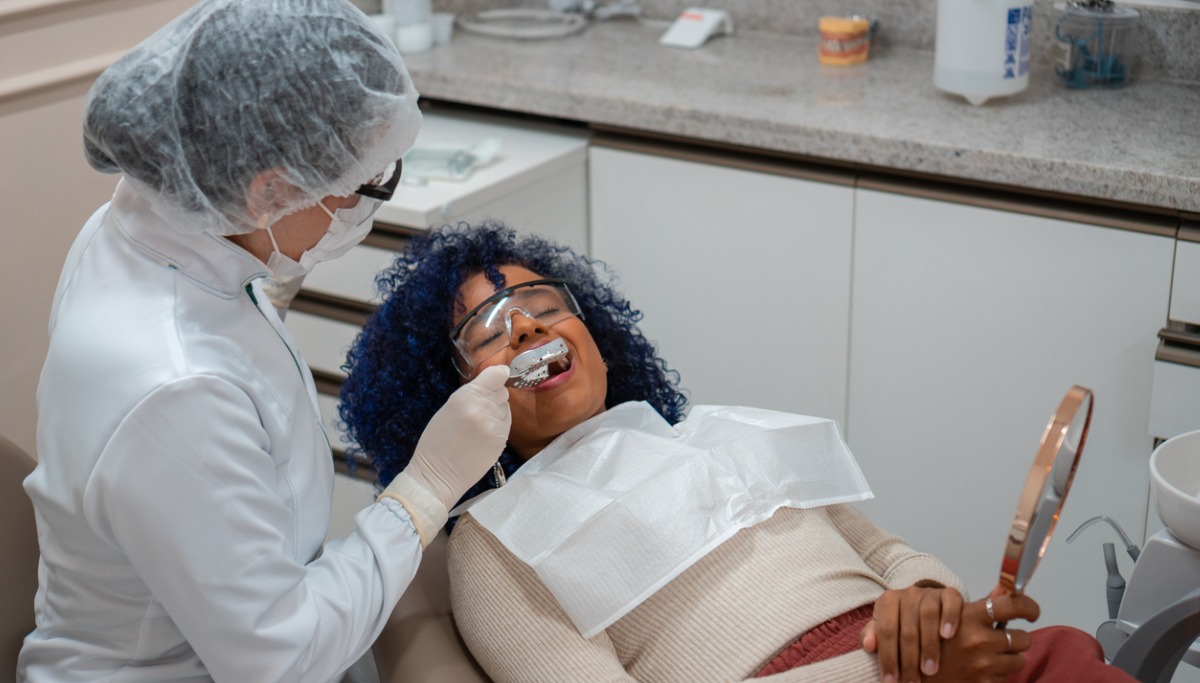What are dental cleanings?
Dental cleanings are a very important part of maintaining healthy teeth and gums, which is vital for protecting your oral and overall health. A dental cleaning includes the removal of plaque, tartar, and bacteria from your teeth by your dentist or dental hygienist.
A routine cleaning appointment will likely include an oral health examination by your dentist. Your dentist may also recommend taking X-rays, which are important for cavity detection and monitoring bone levels.
What are the advantages of a dental cleaning?
Regularly scheduled dental cleanings provide several benefits for your oral and overall health, including:
- An opportunity to ask your dentist how to reduce your risk for oral health issues such as cavities and gum disease1
- Lowering your overall dental care costs by:
- Avoiding more expensive oral health issues entirely
- Addressing issues early, before they become more costly
- Good oral health has been linked to reduced risk for other medical conditions such as heart disease and diabetes
- Prevention of bad breath
What are the types of dental cleanings?
The type of cleaning you need will depend on the current condition of your teeth and gums, and whether you have experienced certain oral health issues in the past.
- Standard prophylaxis cleaning: This is the most common type of cleaning. It is what you receive at your routinely scheduled appointment if you have healthy teeth and gums.
- Full mouth debridement: Sometimes known as a gross debridement, this cleaning is needed when tartar (calculus) buildup prevents your dentist from performing a comprehensive exam. After the full mouth debridement, your dentist will complete an exam.
- Scaling and root planing: Sometimes thought of as a “deep cleaning,” scaling and root planing is a procedure used to treat more serious gum disease. Scaling involves removing plaque and tartar from teeth — both above and below the gum line — and root planing smooths the surfaces of the roots to prevent further buildup. This process promotes the re-attachment of gum tissue to root surfaces.
- Periodontal maintenance: This cleaning is done on an ongoing basis after the completion of scaling and root planing or if you have a history of periodontitis, an advanced form of gum disease. It removes plaque, tartar, and bacteria from above and below the gum line to maintain and prevent further root attachment loss.
How long does a dental cleaning take?
The time needed for a dental cleaning can vary based on how much plaque and tartar (dental calculus) has built up on teeth or below the gum line.
- Standard prophylaxis cleaning: Typically takes between 45 to 60 minutes.
- Full mouth debridement: Usually takes at least an hour but can be longer based on the amount of tartar buildup.
- Scaling and root planing: Typically completed in at least two appointments, lasting 60 to 90 minutes.
- Periodontal maintenance: Usually an hour-long cleaning every three to four months.
How often should you get a dental cleaning?
For many years, the general recommendation has been to visit the dentist twice a year. However, your age, current oral health condition, personal health history, and whether you maintain a regular oral health routine will all influence how often you need a dental cleaning. Because of this, it is best to speak with your dentist about what is right for you.
You should also visit the dentist between regularly scheduled appointments if you notice signs of the following:
- Cavities: White or black spots on a tooth or teeth.
- Tartar buildup: A hardened, yellowish buildup around the base of your teeth.
- Gingivitis/gum disease: Red, swollen gums and, bleeding when you brush.
Each of these issues can lead to larger oral and overall health problems, so it is important to address them as soon as possible.
Who might need more regular dental cleanings?
There are a few reasons your dentist may recommend you schedule more frequent cleanings. For instance, you may benefit from additional cleanings if you:
- Do not regularly brush and floss as part of your daily routine.
- Have current, or a history of, gum disease.
- Are prone to developing tartar buildup quickly.
- Have a high risk of developing cavities.
- Suffer from chronic dry mouth.
- Have a weakened immune system.
- Smoke or use smokeless tobacco products.
- Come from a family with a history of oral health issues.
- Have certain medical conditions, such as diabetes, head and neck cancers, or HIV/AIDS.
- Are undergoing orthodontic treatment.
What is the process for a routine dental cleaning?
A standard prophylaxis cleaning can be performed by your dentist or dental hygienist and includes plaque and tartar removal through scaling, polishing, flossing, and rinsing your teeth above and below the gumline.
In addition to the cleaning, your dentist and hygienist may also recommend:
- Dental X-rays to detect cavities and evaluate bone health.
- An examination of your teeth, mouth, gums, and jaw to look for signs of decay, cracks in the teeth, or other oral health issues.
- Preventive measures such as dental sealants and fluoride treatments.
- Oral hygiene instructions and recommendations for home care.
Some steps in the process, such as dental X-rays and oral health instructions may not be needed at every appointment.
How can you find the costs for a dental cleaning?
One way to easily see costs is to use the Delta Dental cost estimator tool. Enter your zip code to estimate the cost of different dental cleanings and many other procedures.
How long do you have to wait to eat or drink after a dental cleaning?
You can eat and drink as soon as you feel comfortable, unless your dentist used a fluoride treatment — in that case, you’ll want to wait at least 30 minutes. If your mouth feels sensitive, then you may want to wait longer to enjoy very hot or very cold foods and beverages.
What should you do if you have pain or sensitive teeth after a dental cleaning?
A little bit of soreness or sensitivity is normal, especially if you have not had a cleaning in a while. This can be treated with over-the-counter pain medication such as ibuprofen. However, if your pain is severe, or if it lasts for two days or more, then seek an appointment with your dentist.
Dental cleanings protect your smile
From routine checkups to deeper treatments, dental cleanings are a necessary part of keeping your teeth and gums healthy. If you need help finding a dentist, the Delta Dental dentist finder tool can help.
1Four ways you could be at risk for tooth loss. (n.d.) from deltadental.com/us/en/protect-my-smile/oral-health-conditions/at-risk-for-tooth-loss.html







